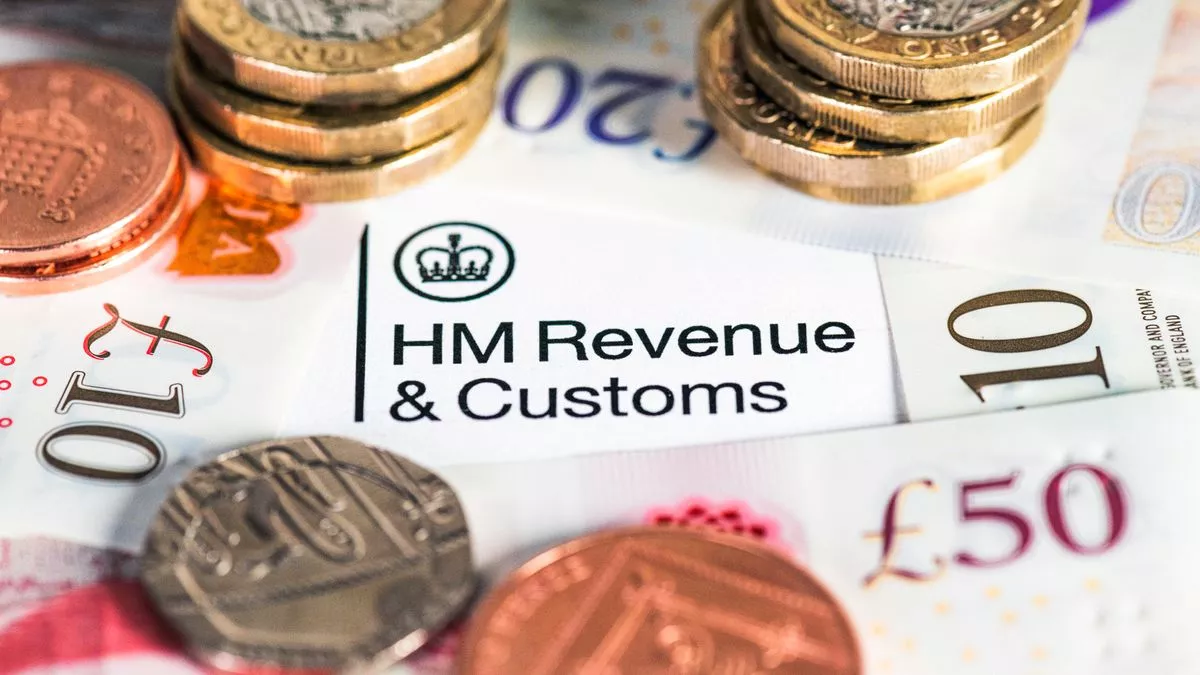Urgent HMRC Communication: Action Required For UK Taxpayers

Table of Contents
Identifying Legitimate HMRC Communications
The first step is verifying the authenticity of the HMRC communication. Scammers often imitate HMRC to steal personal and financial information. Knowing how to spot a fraudulent attempt is critical for protecting yourself.
How to spot genuine HMRC communications:
- Check the sender's email address: Legitimate HMRC emails will come from a @gov.uk address. Be wary of emails from generic domains or those with slight misspellings.
- Look for official HMRC branding and letterhead: Official letters will include the HMRC logo and address. Emails should be professionally formatted and free of grammatical errors.
- Never click links in suspicious emails: Always type the address of the Gov.uk website directly into your browser if you need to access your HMRC account or check information.
- Verify information through the official Gov.uk website: The Gov.uk website is the only reliable source for confirming HMRC communications and updates. Never rely solely on information received via email or phone.
- Phone number verification: HMRC will never ask for your bank details or other sensitive information over the phone. If you receive a call from someone claiming to be from HMRC asking for such details, end the call immediately. You can independently verify the HMRC number online.
Understanding Common Reasons for Urgent HMRC Contact
HMRC may contact you urgently for several reasons related to your tax liabilities. Understanding these reasons will help you respond appropriately. Common reasons include issues with:
- Income Tax: This covers tax on your earnings from employment, self-employment, or investments. An urgent communication might relate to an unpaid tax bill, an amended tax return, or an investigation into your income.
- Corporation Tax: For businesses, this is the tax on company profits. Urgent contact may concern outstanding tax payments, incorrect tax returns, or a tax audit.
- VAT (Value Added Tax): This tax applies to businesses selling goods or services. Urgent communications might be about unpaid VAT bills, incorrect VAT returns, or a VAT inspection.
Potential reasons for urgent contact:
- Unpaid tax bills: Overdue payments will trigger urgent reminders and potential penalties.
- Tax return discrepancies: Inaccuracies or omissions in your tax return may necessitate urgent clarification.
- Audits and investigations: HMRC may conduct investigations into your tax affairs, requiring your cooperation.
- Changes to personal circumstances: Significant life changes (e.g., marriage, moving house) may require updating your tax information.
Responding to an Urgent HMRC Communication
Receiving an urgent HMRC communication requires a prompt and measured response. Failing to act swiftly can lead to penalties.
Steps to take:
- Gather necessary documentation: Collect all relevant tax documents, bank statements, and supporting evidence.
- Respond promptly within the given timeframe: Adhere to any deadlines stated in the communication.
- Use secure communication channels: Respond via the official channels specified by HMRC (e.g., their online portal, a secure reply email address).
- Seek professional tax advice if needed: If you're unsure how to proceed, consult a qualified accountant or tax advisor.
Avoiding HMRC Penalties and Interest
Ignoring HMRC communications carries severe consequences. Late payments and non-compliance result in penalties and interest charges that can significantly increase your tax bill.
Potential consequences:
- Late payment penalties: These are added to your unpaid tax bill and increase over time.
- Interest charges on unpaid taxes: Interest accrues daily on outstanding tax debts.
- Potential legal action: Persistent non-compliance can lead to legal proceedings and further penalties.
- Damage to credit rating: Outstanding tax debts can negatively affect your credit score.
Conclusion: Taking Action on Your Urgent HMRC Communication
Receiving an urgent HMRC communication requires immediate attention. By understanding how to identify legitimate contacts, responding appropriately, and understanding the potential consequences of inaction, you can ensure your tax compliance and avoid unnecessary penalties. Check your HMRC online account regularly, respond promptly to all communications, and seek professional advice when needed. Proactive tax planning and management are key to avoiding urgent tax matters and maintaining good standing with HMRC. Don't delay – address your urgent HMRC communication today to ensure your tax compliance in the UK and avoid potential tax penalties.

Featured Posts
-
 Michael Schumacher Are O Nepoata Gina Maria A Devenit Mama
May 20, 2025
Michael Schumacher Are O Nepoata Gina Maria A Devenit Mama
May 20, 2025 -
 Lou Gala Exploring The Career Of The Decamerons Breakout Star
May 20, 2025
Lou Gala Exploring The Career Of The Decamerons Breakout Star
May 20, 2025 -
 Madrid Open Sabalenka Defeats Mertens Secures Spot In Last 16
May 20, 2025
Madrid Open Sabalenka Defeats Mertens Secures Spot In Last 16
May 20, 2025 -
 The Gop Tax Plans Impact On The National Deficit Fact Vs Fiction
May 20, 2025
The Gop Tax Plans Impact On The National Deficit Fact Vs Fiction
May 20, 2025 -
 Agatha Christie Une Exploration De Son Uvre Integrale
May 20, 2025
Agatha Christie Une Exploration De Son Uvre Integrale
May 20, 2025
